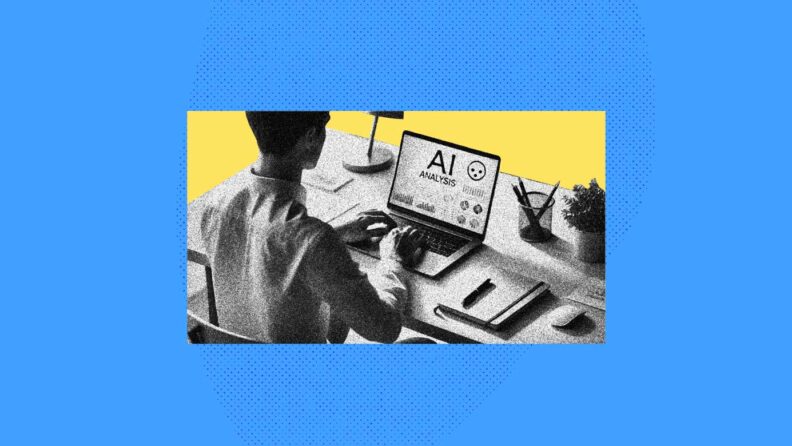As the world panics about AI, all the parents out there have likely felt this before. Remember that feeling when you first brought your newborn home? That overwhelming moment when you're drowning in advice about how to hold, burp, bathe, and soothe your baby?
There I was, decades ago, tears streaming down my face, paralyzed by information overload with zero hands-on experience to guide my decisions. Yet decisions had to be made because my tiny human demanded it.
This same paralysis is happening right now with AI - but on a massive, global scale.
When Innovation Freezes Us
Since OpenAI introduced ChatGPT in fall 2023, we've witnessed an explosion of generative AI technologies that promise to revolutionize, well, everything. Industry titans aren't mincing words about its significance:
Bill Gates called AI development "as fundamental as the creation of the microprocessor, the personal computer, the Internet, and the mobile phone." Elon Musk declared it "the most powerful tool for creativity that has ever been created."
Yet despite these glowing endorsements from tech's biggest names, a Pew Research Center study found that 63% of American workers say they don't use AI much or at all in their jobs. How can something so revolutionary be so widely ignored?
The answer isn't logical - it's psychological. It's emotional. It's the same deer-in-headlights feeling I had as a new mom faced with too many inputs and too little experience.
Why We're Stuck
Our reluctance to embrace AI stems from a deeply rooted human reaction to change. According to research on AI adoption, the "endowment effect" is partly responsible - we overvalue what we already possess (our current skills and technologies) simply because they belong to us.
This leads to an irrational resistance to switch to something new, even when that new thing might be objectively better.
The paralysis manifests differently depending on your role:
For employees
Many workers express significant concerns about AI's impact. Research shows that over half of U.S. employees worry about AI's future impact on their workplace, with many fearing fewer job opportunities in the long run. This isn't just caution - it's full-blown anxiety.
The fear isn't just about job displacement - it's also about inadequacy. A 2024 McKinsey report found that 56% of workers in AI-integrated workplaces experience moderate to high impostor syndrome, especially those in non-technical roles. That feeling that everyone else understands this technology but you? You're not alone.
For CHROs/Chief People Officers
Companies aren't faring much better. People leaders often underestimate how much their employees are already using AI tools, creating what experts call an "AI readiness paradox." This disconnect between leadership perception and workplace reality creates challenges for effective implementation.
The gap produces notable organizational tensions. Studies show that AI adoption has led to division within many organizations, with employees sometimes actively or passively resisting new AI tools and applications. Interestingly, younger workers, particularly Gen Z, show higher rates of resistance to organizational AI initiatives.
Like my new-mom paralysis, HR leads are frozen by too many options, too much conflicting advice, and the high stakes of getting it wrong.
Meanwhile, some executives have outright demanded AI use, going so far as to say that using AI is a baseline expectation and that before anyone new is hired, team leaders will need to show that the job can't be done with AI agents. This, for many, has only created more tension.
Breaking Through the AI Paralysis
So how do we move past this collective deer-in-headlights moment? It starts with recognizing that the emotional and psychological barriers are just as important as the technological ones.
For individuals
- Start small: Just as I eventually learned to parent—one feeding, one diaper change at a time—begin with simple AI applications that enhance rather than replace your work.
- Find your "AI mom-group": Seek safe environments for experimentation where you can learn alongside others without judgment.
- Focus on collaboration, not replacement: The most successful AI implementations emphasize "superagency" - where humans and AI work together to achieve greater productivity and creativity than either could alone.
For people leaders
- Map the journey: Develop a clear AI adoption plan with specific goals, priorities, and timelines for implementation.
- Create psychological safety: Proactively communicate how AI will affect roles, provide comprehensive training programs, and establish mechanisms to address employee concerns.
- Recognize AI champions: Identify and reward employees who successfully integrate AI into their workflows, creating visible success stories.
- Prioritize human-centered design: Align AI systems with employee needs, competencies, and well-being to create an empowering rather than threatening work environment.
Embracing the AI Baby
When I brought my newborn home, I wasn't prepared for the overwhelming responsibility. But I didn't have a choice - I had to move past paralysis into action. The same is true for AI adoption.
Almost all companies invest in AI today, but only 1% believe they've reached maturity in their implementation. This isn't surprising - we're collectively experiencing those early, terrifying days of figuring out how this new arrival changes everything.
But just as parenting gets easier as you develop your own instincts and patterns, our relationship with AI will find its rhythm too. The first step is acknowledging that our paralysis isn't about the technology itself - it's about being human in the face of profound change.
When my baby cried, I eventually stopped freezing and started acting - not because I suddenly knew everything, but because I accepted that learning would happen through doing. The same is true for our AI future. The path forward isn't through perfect knowledge, but through imperfect action.
The question isn't whether we'll adopt AI - it's whether we'll do it thoughtfully or reactively. And that choice, like so many parenting decisions, will shape everything that follows.
What's Next?
Want more commentary and analysis about the latest trends in HR and People Operations? Subscribe to the People Managing People newsletter and you'll get all the latest insights, expert advice and thought provoking content straight to your inbox.




